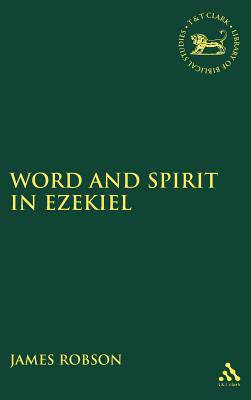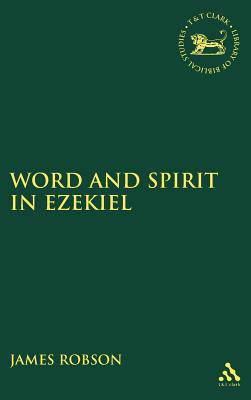
- Retrait gratuit dans votre magasin Club
- 7.000.000 titres dans notre catalogue
- Payer en toute sécurité
- Toujours un magasin près de chez vous
- Retrait gratuit dans votre magasin Club
- 7.000.0000 titres dans notre catalogue
- Payer en toute sécurité
- Toujours un magasin près de chez vous
Description
Two fundamental experiences of Yahweh in the Old Testament are an encounter with the 'word' of Yahweh and an encounter with the 'spirit' or 'wind' or 'breath' (rva-) of Yahweh. This thesis explores 'word', rva-, and their relationship in the book of Ezekiel. According to the dominant paradigm for explaining the emphasis on rva- and its relation to Yahweh's word within the book of Ezekiel, the prophet Ezekiel is recovering from the pre-classical prophets, or even pioneering, an emphasis on rva- in prophecy that is conspicuously absent from the classical, writing prophets. This reading interprets the emphasis on rva- in Ezekiel in terms of the self-authentication of the ministry of the prophet. This book examines the relationship between rva- and prophecy in Ezekiel and in the rest of the Old Testament, and shows that the dominant paradigm requires modification. The emphasis on Yahweh's rva- in Ezekiel, even the 'prophetic spirit', is best understood in relation to the book's concern for the transformation of its addressees. The prophet Ezekiel's experience of Yahweh's rva- and his own obedience to Yahweh's call are clearly contrasted with the disobedience of the prophet's addressees in order to present Ezekiel as a model for the addressees of the book. His experience illuminates for them how the dramatic vision of the future can become a reality in their experience. Yahweh's rva- has a fundamental role in the envisaged obedient response to Yahweh's word, both of Ezekiel and of the book's addressees.
Spécifications
Parties prenantes
- Auteur(s) :
- Editeur:
Contenu
- Nombre de pages :
- 340
- Langue:
- Anglais
- Collection :
- Tome:
- n° 447
Caractéristiques
- EAN:
- 9780567026224
- Date de parution :
- 01-10-06
- Format:
- Livre relié
- Format numérique:
- Genaaid
- Dimensions :
- 152 mm x 229 mm
- Poids :
- 648 g

Les avis
Nous publions uniquement les avis qui respectent les conditions requises. Consultez nos conditions pour les avis.






